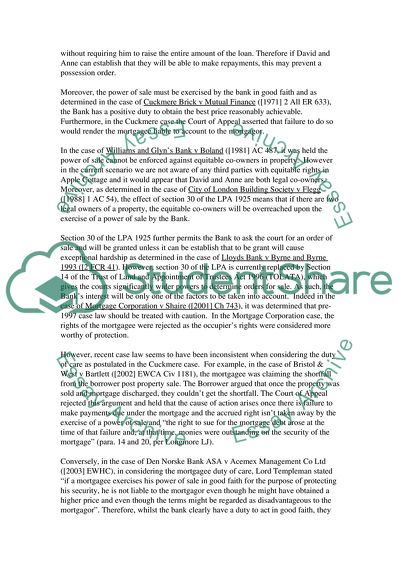Cite this document
(Obligations of the Bank in Connection with the Sale of Property Case Study Example | Topics and Well Written Essays - 2000 words, n.d.)
Obligations of the Bank in Connection with the Sale of Property Case Study Example | Topics and Well Written Essays - 2000 words. https://studentshare.org/law/1718956-the-mortgagees-power-of-sale-it-is-a-problem-question-the-question-will-follow-to-the-order-instructuions
Obligations of the Bank in Connection with the Sale of Property Case Study Example | Topics and Well Written Essays - 2000 words. https://studentshare.org/law/1718956-the-mortgagees-power-of-sale-it-is-a-problem-question-the-question-will-follow-to-the-order-instructuions
(Obligations of the Bank in Connection With the Sale of Property Case Study Example | Topics and Well Written Essays - 2000 Words)
Obligations of the Bank in Connection With the Sale of Property Case Study Example | Topics and Well Written Essays - 2000 Words. https://studentshare.org/law/1718956-the-mortgagees-power-of-sale-it-is-a-problem-question-the-question-will-follow-to-the-order-instructuions.
Obligations of the Bank in Connection With the Sale of Property Case Study Example | Topics and Well Written Essays - 2000 Words. https://studentshare.org/law/1718956-the-mortgagees-power-of-sale-it-is-a-problem-question-the-question-will-follow-to-the-order-instructuions.
“Obligations of the Bank in Connection With the Sale of Property Case Study Example | Topics and Well Written Essays - 2000 Words”. https://studentshare.org/law/1718956-the-mortgagees-power-of-sale-it-is-a-problem-question-the-question-will-follow-to-the-order-instructuions.


